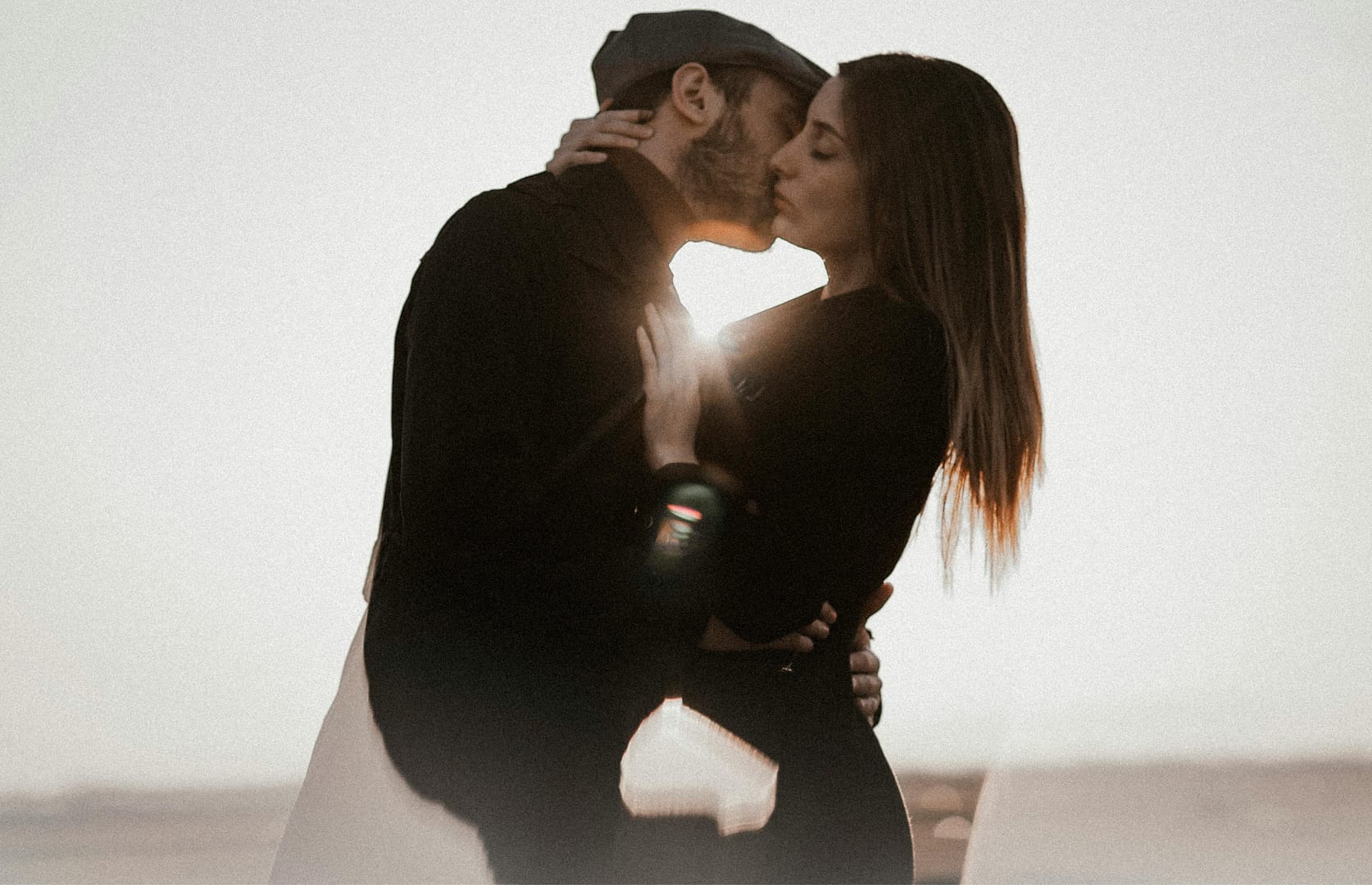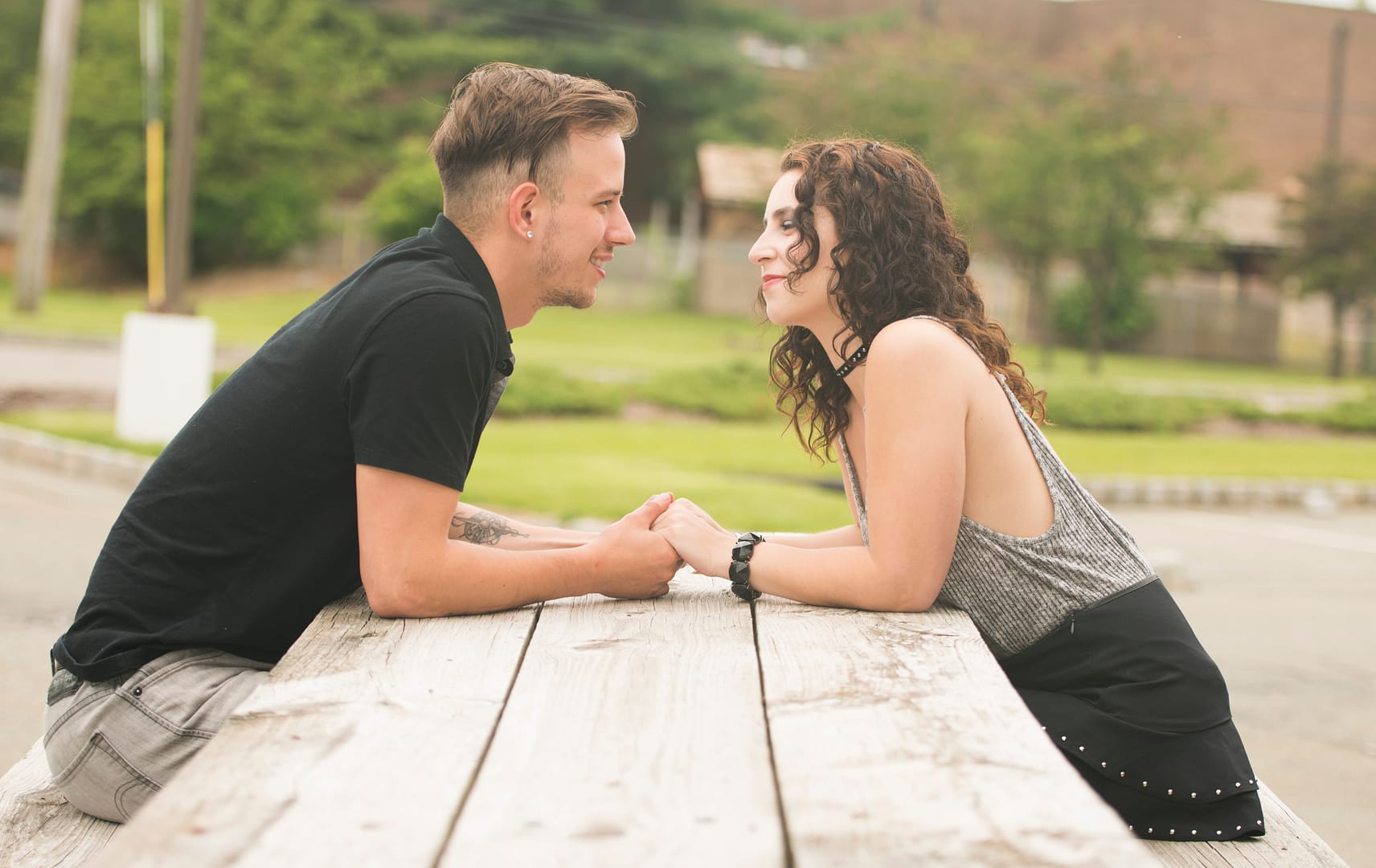Picture this: You're sitting across from someone who knows your coffee order by heart, can finish your sentences, and has seen you at your absolute worst—yet still chooses to be there. Now imagine that same person looking into your eyes and saying, "I think I'm falling in love with you."
This isn't a fairy tale. It's the friendship to forever love story that's becoming an increasingly popular approach to lasting happiness. While movies sell us on love at first sight, many people are discovering something equally beautiful: love that grows from genuine friendship can create strong, fulfilling marriages.
Have you ever wondered whether that spark you feel with your best friend could be something more? If so, you're about to explore why this particular love story appeals to many relationship counselors—and why it might just be a beautiful plot twist for some people.
Every relationship journey is unique. These insights reflect common patterns in successful friendship-based relationships and should be considered alongside your personal circumstances.
Chapter 1: The Foundation Years

Chapter Summary: These reasons focus on the solid groundwork already established through friendship—trust, authenticity, humor, and proven compatibility that gives you a head start in romance.
1. You've Already Passed the "Real Person" Test
Most relationships begin with everyone on their best behavior. But when friendship evolves into forever love, you've already seen each other's authentic selves. They've witnessed your Monday morning grumpiness, your stress-eating habits, and that weird dance you do when your favorite song comes on.
This authenticity creates something rare: love without pretense. You're not wondering if they'll still love you when the honeymoon phase ends—because they already love the real you, not the polished version.
Consider this scenario: Dating someone new often means hiding your quirky habits like:
- Talking to your plants
- Crying during commercials
- That weird victory dance you do
Your best friend, however, has seen all these sides of you and still chooses to spend time with you. This acceptance forms a foundation that many couples spend years trying to build. The result? Waking up with messy hair, wearing your oldest sweatpants, and still feeling completely loved and accepted.
2. Trust Became Your Language Before Love Had Words
In most relationships, trust builds slowly over months or years. Your friendship-to-forever story is different. Trust was already the foundation before romance entered the picture. They've kept your secrets, shown up in crises, and proven their character through actions, not just sweet words.
This existing trust eliminates the anxiety that plagues many new relationships. Gone are the worries about honesty or fears of abandonment—you already know they're solid.
3. Laughter Was Your First Love Language
Before you fell in love with their kiss, you fell in love with the way they made you laugh. Shared humor isn't just fun—it's relationship armor. When life gets stressful (and it will), you have years of inside jokes, funny memories, and the ability to make each other smile even on the hardest days.
Couples who laugh together don't just stay together—they thrive together. Your friendship already proved you can find joy in each other's company, which means you're building on something genuinely sustainable.
4. You Know Each Other's Love Languages Fluently
While other couples spend months learning how to show love effectively, friendship-to-forever couples often already speak each other's emotional language. You know whether they need words of affirmation after a tough day or prefer a quiet hug. You understand their quirks, their comfort zones, and what makes them feel truly valued.
This head start means you can focus on deepening intimacy rather than figuring out the basics of how to care for each other.
5. Your Support Systems Are Already Integrated
When friendship becomes forever, you're not just marrying someone—you're joining lives that already fit together. Their family knows you, your friends love them, and there's no awkward "getting to know the inner circle" phase. This integration provides stability and reduces the stress that often accompanies serious relationship milestones.
6. You've Weathered Storms as a Team
Life has already tested your partnership. Whether it was supporting each other through breakups, job losses, family drama, or personal challenges, you've proven your ability to be there for each other when it matters most. This track record provides confidence that you can handle whatever married life brings.
Chapter 2: The Heart of the Matter
Chapter Summary: This section explores the emotional and psychological advantages—from built-in safety to natural compatibility that makes daily life together more harmonious.
7. Emotional Safety Isn't Something You Have to Build—It Already Exists
The emotional safety that takes many couples years to develop is your starting point. You can cry without judgment, share fears without ridicule, and be vulnerable without risk. This safety net becomes the foundation for deeper intimacy as your relationship evolves.
Real-life example: Imagine being able to call someone at 2 AM because you're having a panic attack about a work presentation. You know they won't judge you for being "dramatic" or "needy."
Your best friend has already proven they can handle your emotional ups and downs through:
- Stressful exam periods
- Family drama situations
- Career uncertainty moments
- Small daily victories and defeats
This emotional reliability creates a sense of security that allows love to flourish naturally. No need to test the waters of vulnerability—you already know it's safe to dive in.
8. Conflict Doesn't Feel Like a Relationship Threat
Every couple argues, but transitioning from friendship to forever makes disagreements feel different. As friends, you've already navigated conflicts and learned that disagreements don't destroy relationships. Arguments become opportunities for understanding rather than battles for survival.
Moreover, the security of your friendship foundation means fights feel less threatening. Both partners know the relationship will survive a disagreement.
9. You Genuinely Like Each Other (Not Just Love)
Here's something many couples discover too late: love and like are different things. You can love someone but not enjoy their company. In friendship-to-forever relationships, you already know you genuinely enjoy spending time together. You like their personality, their perspective, and their presence in your life.
10. Independence Within Connection Is Natural
Healthy friendships involve supporting each other's individual growth while maintaining personal identities. This balance often carries beautifully into romantic relationships, creating marriages where both partners can thrive as individuals while building something beautiful together.
Your best friend has likely encouraged your independence by:
- Supporting your solo adventures and travel plans
- Celebrating your career achievements without feeling threatened
- Understanding your need for girls' nights out
- Respecting your personal hobbies and interests
- Giving you space during busy periods
This healthy independence doesn't disappear when romance enters the picture—it often strengthens it. You're not losing yourself in the relationship because you've already established that both of you are complete individuals who choose to share your lives together.
11. Physical Affection Feels Natural, Not Forced
When friendship evolves into romance, physical intimacy often develops organically rather than awkwardly. You're already comfortable with each other's presence, casual touch, and personal space. This comfort often translates into more natural, satisfying physical intimacy.
12. You Want the Same Things in Life
Years of friendship can often reveal compatibility in values, goals, and lifestyle preferences. You're not discovering major incompatibilities after falling in love—you may already know you want similar things from life, which can provide a strong foundation for building a future together.
Chapter 3: The Forever Part
Chapter Summary: The final reasons focus on long-term sustainability—shared history, conscious choice, and the deep sense of "home" that makes this love story last.
13. Your Love Story Has Depth and History
While other couples are creating memories, you're building on years of shared experiences. Your love story isn't starting from scratch—it's evolving from something already meaningful. This depth creates a richness that newer relationships often take years to develop.
14. You're Marrying Someone Who Chooses You Every Day
Perhaps the most beautiful aspect of friendship-to-forever love is that it's entirely voluntary. They didn't fall for you in a moment of passion or attraction—they chose to love you after really knowing you. They've seen you at your worst and decided you're worth choosing anyway.
Here's what makes this special: While others might wonder if their partner truly knows them, you have the security of knowing yours does—completely.
They've witnessed you:
- Navigate difficult family dynamics
- Handle work stress and deadlines
- Manage financial worries
- Deal with personal insecurities
- Make tough life decisions
Through all of these real-life situations, they've continued to choose your friendship. Now they're choosing something deeper. This isn't love based on an idealized version of you. Instead, it's love based on the full, authentic, sometimes messy reality of who you are.
15. Passion Grows from Something Real
Contrary to popular belief, passion that grows from friendship can often become deeper and more sustainable than attraction-based passion. When physical attraction is rooted in genuine affection, emotional intimacy, and deep knowing, it may tend to deepen over time rather than fade.
16. You're Building on Proven Compatibility
You may already know you can travel together, handle stress together, and enjoy quiet evenings together. You've likely tested your compatibility in various real-life situations, not just romantic settings. This proven compatibility can reduce some of the uncertainty about whether you can actually build a life together.
Please remember: Every friendship and relationship dynamic is different. What works for some may not work for others, and individual experiences can vary significantly.
17. Coming Home Means Coming to Your Person
The most compelling reason friendship-to-forever works is simple: being together feels like home. Not just because it's comfortable (though it is), but because it's where you most fully yourself. You're not just finding a romantic partner—you're choosing to build forever with someone who already feels like family.
The Beautiful Reality of This Love Story
Friendship-to-forever relationships aren't perfect, but they often start with advantages that many couples spend years trying to develop. The trust, compatibility, and genuine affection provide a foundation that can support both the everyday moments and the extraordinary challenges of marriage.
This doesn't mean every friendship should become a romance, or that attraction isn't important. Many successful friendship-to-forever stories involve both genuine romantic feelings and deep friendship—not just one or the other.
It's important to note that not all friendships translate to successful romantic relationships, and this approach isn't right for everyone. Consider seeking guidance from trusted friends, family, or relationship counselors when making important decisions about love and partnership.
When to Know This Story Is Yours to Write
If you're wondering whether to explore romance with a close friend, consider these signs that your friendship might have forever potential:
Green Lights:
- You feel romantic attraction alongside friendship
- Both of you are interested in exploring the possibility
- You can imagine a romantic future that excites rather than worries you
- Your values and life goals align naturally
- The thought of them with someone else creates genuine sadness (not just possessiveness)
Proceed with Caution If:
- Only one person is interested in the transition
- You're choosing "safe" over exciting
- You're trying to force feelings that aren't naturally there
- You have completely different life goals or timelines
- The friendship would be destroyed if romance doesn't work out
Writing Your Own Love Story
The most beautiful thing about friendship-to-forever love stories is that they combine the best of both worlds: the security of deep friendship with the excitement of romantic love. The result? A partner who genuinely likes you, knows you completely, and chooses you anyway.
Have you found yourself falling for someone who already holds a special place in your life? If so, you might be on the verge of the most beautiful plot twist imaginable. Not all love stories begin with love at first sight—some of the most beautiful ones begin with "I already know you're amazing."
The question isn't whether friendship can become forever love. The question is whether you're brave enough to find out if this particular friendship is writing itself toward forever.
Ready to explore the next chapter? Sometimes the greatest love stories are hidden in plain sight, waiting for someone brave enough to say, "What if we tried being more than friends?" If that someone is you, you might just be writing the love story you've always dreamed of.
FAQs - Friendship to Forever Love Story
Q: Can genuine friendship really turn into lasting romantic love?
A: Many successful marriages begin as friendships. The combination of deep emotional connection, proven compatibility, and genuine affection often creates stronger romantic relationships than those based on initial attraction alone.
Key point: This transition requires mutual romantic interest—friendship alone isn't enough. Both people need to feel genuine romantic and physical attraction for the relationship to evolve successfully.
Q: How do I know if my feelings for my friend are romantic or just deep friendship?
A: Romantic feelings typically include:
- Physical attraction and desire for intimacy
- Wanting an exclusive partnership
- Envisioning a romantic future together
- Feeling jealous when they date others
- Desiring more than friendship, boundaries allow
The key difference lies in the desire for physical intimacy and an exclusive romantic partnership, not just emotional closeness.
Q: What if exploring romance ruins our friendship?
A: This is a valid concern requiring honest communication and careful consideration.
Best approach:
- Have an open conversation about your feelings
- Gauge their response honestly
- If both are interested, explore gradually
- If not, strong friendships can often weather this conversation
Success factor: Handling the situation with respect and understanding, regardless of the outcome.
Q: Is it settling to marry your best friend instead of waiting for passionate love?
A: The healthiest romantic relationships typically combine both friendship and passion.
Not settling if: You feel genuine romantic attraction to your best friend—you're potentially finding the ideal combination.
Could be settling if: You're only considering marriage because they're "safe" or "convenient" without genuine romantic feelings.
The goal: Find someone who is both your best friend AND someone you're romantically attracted to.
Q: How long should a friendship exist before considering romance?
A: There's no specific timeline—depth matters more than duration.
What matters most:
- Both people genuinely know each other beyond surface level
- You've experienced different life situations together
- You understand each other's values and goals
- Trust and emotional intimacy are established
- You've seen each other handle various challenges
Q: What are the potential challenges of transitioning from friendship to romance?
A: Common challenges include:
- Changing your existing relationship dynamic
- Potentially complicating your friend group
- Different expectations about romantic development pace
- Difficulty with physical intimacy after platonic years
- Shifting communication styles from friendship to romance
Solution: Be patient with the transition and communicate openly about any awkwardness.
Q: How do we handle it if the romantic relationship doesn't work out?
A: While there's always some risk, many friendship-to-romance attempts can return to friendship with:
Key strategies:
- Maintaining honest communication
- Avoiding blame and resentment
- Giving each other processing space
- Sometimes taking a temporary friendship break
- Handling the situation with maturity and respect
Remember: The strength of your original friendship often determines recovery success.
Q: Should we tell our friends and family right away?
A: Option 1: Keep early stages private until you're sure about the relationship direction
- Avoids external pressure
- Allows exploration without outside opinions
Option 2: Be open from the beginning
- Some prefer transparency
- Depends on your social circle dynamics
Best choice: Whatever feels comfortable for both of you and your specific situation.
Remember: Every relationship is unique. Trust your instincts while considering these insights, and don't hesitate to seek guidance from trusted friends, family, or relationship counselors when making important decisions about love and partnership.

















